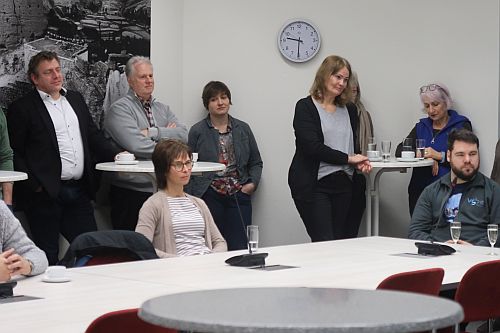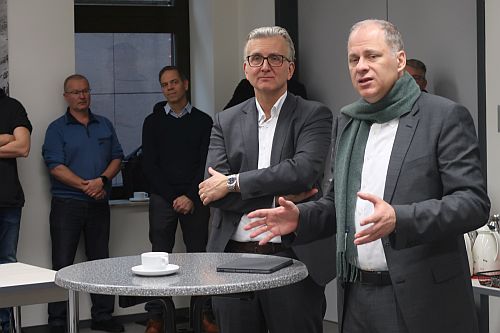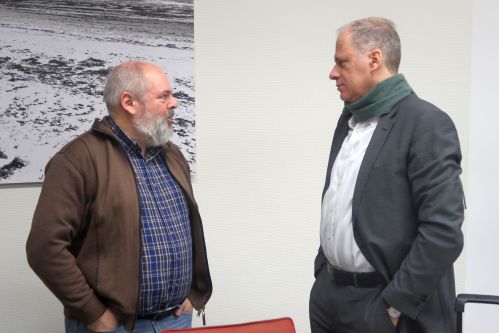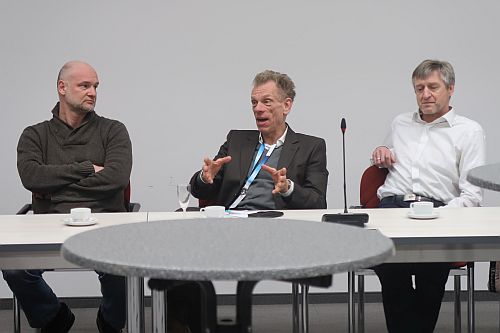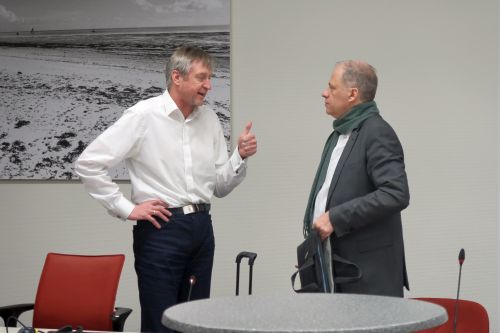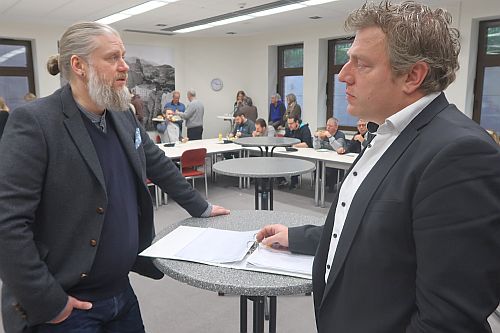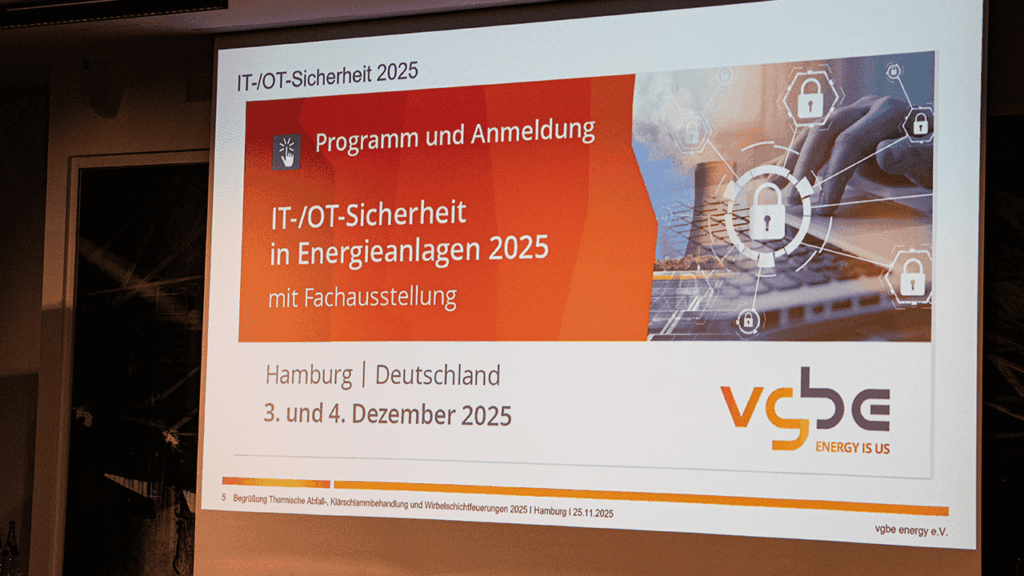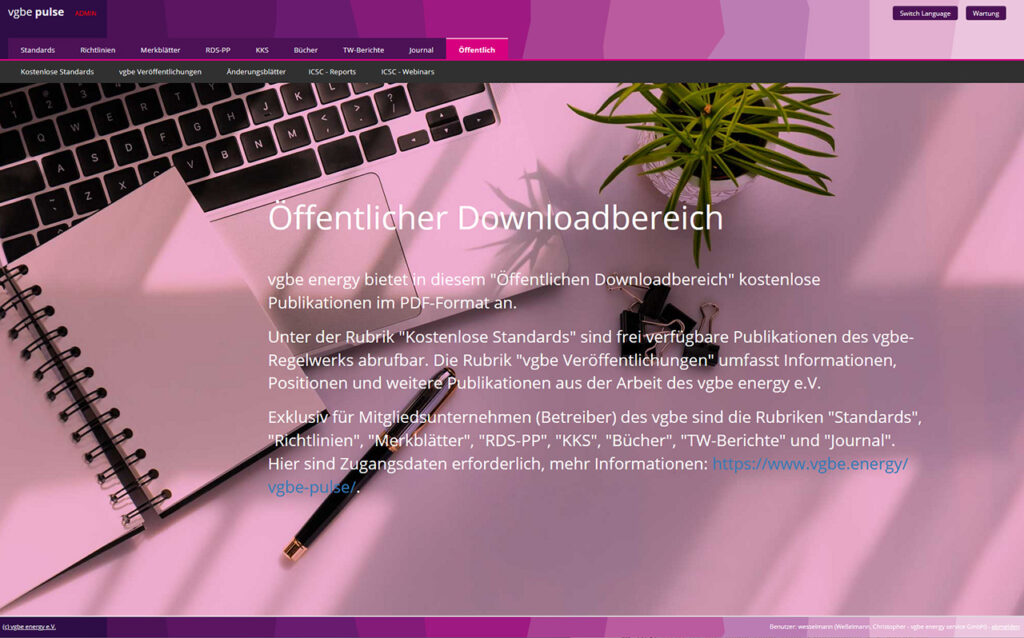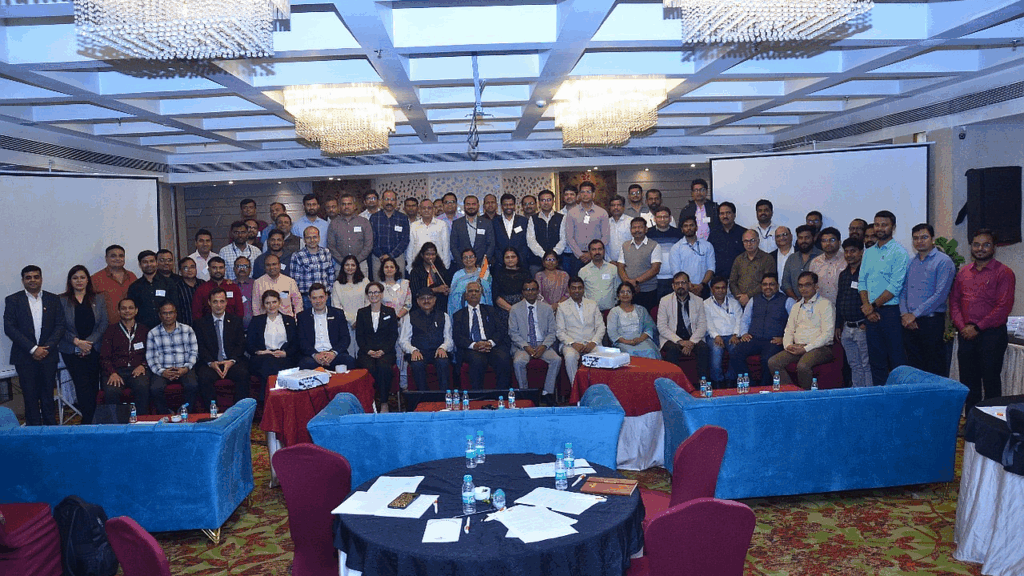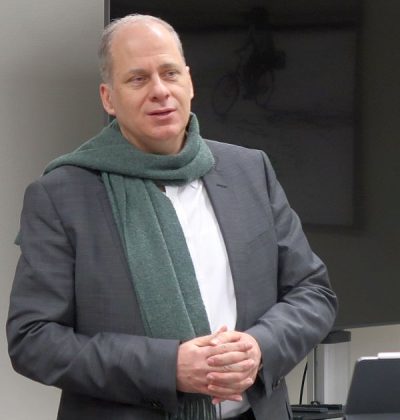
Dr Georgios Stamatelopoulos, vgbe Chairman, visited vgbe offices at the Energie-Campus Deilbachtal in Essen Kupferdreh on the occasion of vgbe´s New Year’s Reception.
After it was unfortunately not possible to hold vgbe´s New Year’s reception with management and staff of vgbe energy e.V. and vgbe energy service GmbH in the last three years due to the pandemic, this year staff and management got together for a joint breakfast to revive the traditional reception.
The visit of Dr Gerogios Stamtelopoulos, who took the opportunity to thank – together with vgbe Managing Director Dr Oliver Then – vgbe´s employees for their work over the past year, was particularly well received.
Furthermore, Dr Stamatelopoulos reviewed the enormous challenges facing the energy sector in the past year. He explained that climate protection, the dominant topic of the past, had been replaced by the topic of security of supply due to the acute crisis situation in 2022.
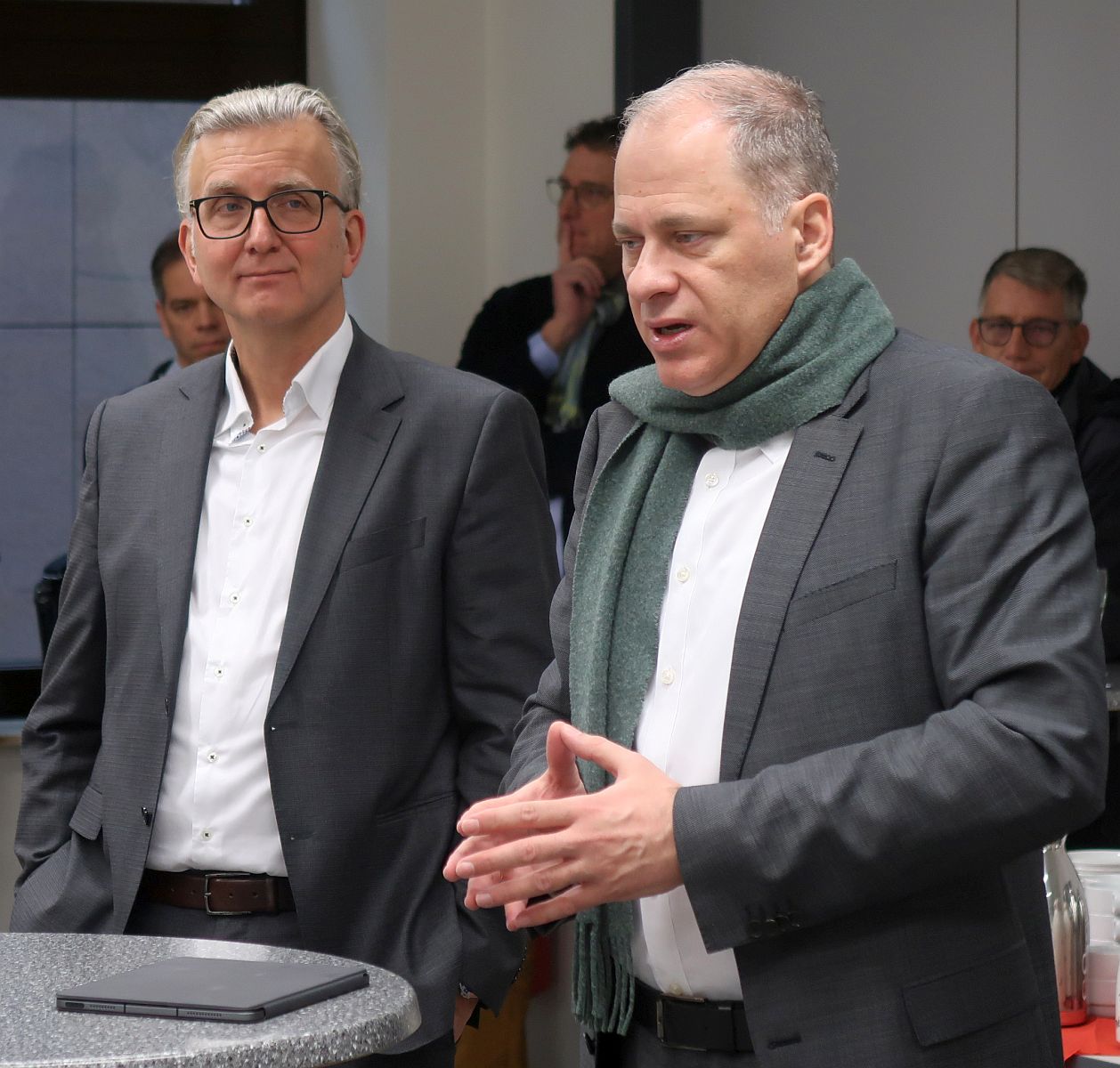
The Russian war on Ukraine required to immediately reduce the dependence on Russian gas in the EU and Germany. In Germany, operators and politicians had succeeded in reducing dependency on Russian gas from 55% to 0% within just six months thanks to higher capacities from Norway, the Netherlands and LNG from the USA and Arab countries. The vgbe Chairman explained that the issues related to the energy transition had again been highly controversial. He carried on that the coal phase-out had been decided everywhere in Europe. The expansion of renewables was being pushed forward everywhere, but there were differences with regard to the available controllable energy that was needed to balance the fluctuating generation of renewables in order to ensure supply and grid operation. Germany was committed to 100% renewable energy with natural gas as a bridging technology until the market ramp-up of hydrogen, green gases and the expansion of energy storage. According to him, the crisis had shown that Germany was on the right track. If renewables had been expanded more strongly in recent years, the effects of the crisis would have been less drastic. The vgbe Chairman outlined the extent to which renewables would have to be expanded in order to be able to implement the politically desired, ambitious expansion targets. He further explained that the energy turnaround was technically feasible, but that there was a lack of expansion areas and that the approval procedures urgently needed to be accelerated. In this context, he referred to the rapid approval policy in connection with LNG terminals, two of which were already in operation. Politics and authorities had reacted swiftly and had issued the necessary permits quickly. The vgbe Chairman said that he expected similar speed and overall simplification regarding the approvals for the urgent expansion of renewables. Likewise, reliable framework conditions were indispensable so that the necessary investments could also be made on the side of manufacturers.
With all the challenges ahead in connection with the energy transition, Dr Stamatelopoulos emphasised the value of vgbe: the association would take an active role in the transformation of energy supply and would contribute to the necessary fact-based discourse with its know-how, the results of its joint research work, with its studies and overall with the bundled expert knowledge of the strong vgbe community.
Following Dr Stamatelopoulos’ presentation, vgbe staff had ample opportunity for a lively exchange with the vgbe Chairman, who also visibly enjoyed meeting a large number of the vgbe team for discussing the current issues of the energy industry.
